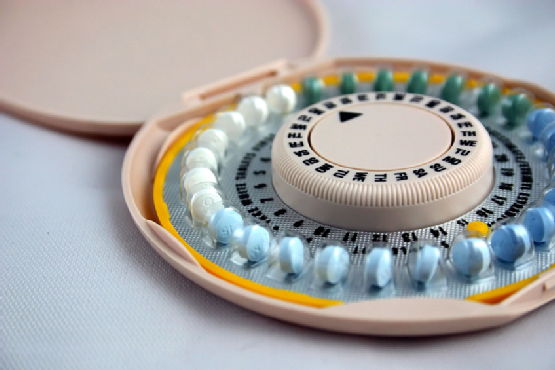-
Understanding the Difference Between Emergency Contraception and Abortion

There has been plenty of controversy with regard to emergency contraception. It’s a common misconception that emergency contraception causes a chemical abortion because it’s taken after sex. In fact, emergency contraception and abortion work in different ways and are not the same. If your primary method of birth control has failed, you can go to a women’s health clinic or pharmacy to obtain emergency contraception. If you do not take emergency contraception and later become pregnant, you can make an appointment with a gynecologist for an abortion.
How Emergency Contraception Works
Scientific studies support the assertion that emergency contraception works by preventing pregnancy , rather than facilitating an abortion. Plan B, commonly referred to as “the morning after pill,” works by preventing ovulation. When the ovaries are prevented from releasing an egg, the egg cannot become fertilized. Additionally, if fertilization does occur, emergency contraception prevents the egg from implanting in the uterus—a critical step for pregnancy to occur. Many fertilized eggs never become implanted to the uterine wall due to natural causes. In fact, experts propose that up to half of all fertilized eggs simply pass out of the woman’s body instead of establishing pregnancy. Taking emergency contraception can help ensure that this will occur.
How Chemical Abortions Work
Chemical, or non-surgical, abortions are a safe, legal option for women who are less than six weeks pregnant. They are accomplished by taking a pill known as mifepristone, also sometimes called RU-486. This pill isn’t the same as emergency contraception because it works by terminating an established pregnancy, rather than preventing one. After taking the pill, the woman’s body rejects the pregnancy in a manner much like a miscarriage. The drug works by changing the uterine lining to prevent the egg from staying attached. Misoprostol is given along with mifepristone to encourage the uterus to contract to expel the pregnancy tissue.
The gynecologists of Washington Surgi-Clinic provide confidential women’s healthcare services at an affordable fee . Our women’s clinic offers safe surgical and non-surgical abortions, STD testing, and birth control, including emergency contraception. Those in Washington, D.C. and beyond can schedule an appointment by calling (202) 659-9403.
-
Good Candidates for Chemical Abortions

Women in need of pregnancy termination might be eligible for a chemical abortion if they are still within the first trimester of their pregnancies. Specifically, a chemical abortion is an option for women who have not yet surpassed six weeks of pregnancy. In contrast to a surgical abortion, which is performed entirely within an abortion clinic, a chemical abortion can be carried out within the patient’s home. The medication given to the patient leads to the cessation of the pregnancy. A chemical abortion also causes contractions so that the tissues of the uterus can leave the body. Women who suspect they may be pregnant should consult a gynecologist about their chemical abortion options as soon as possible, as more advanced pregnancies may require surgical abortions.
Do you have more questions about chemical abortions ? If so, call Washington Surgi-Clinic at (202) 659-9403 to speak with an associate at our women’s clinic. We provide both surgical and chemical abortions for eligible patients in the greater Virginia, Maryland, and Washington, D.C. regions.
-
Overcoming Myths about HPV
HPV is an acronym for human papillomavirus, a term that encompasses more than 100 different viruses. This video reports on common HPV misconceptions.
One of the biggest myths regarding HPV is that once a person contracts it, he or she will forever have to live with the virus. On the contrary, approximately nine in 10 people who have HPV will clear the virus through their own immune systems. Of those who do not, close supervision of the disease by a physician is highly recommended. Another HPV misconception is that only promiscuous individuals get it. However, because these viruses can pass from skin-to-skin contact, even people who refrain from intercourse can contract HPV.
Getting a Pap smear is the first step toward knowing whether you have HPV. To schedule an appointment, call Washington Surgi-Clinic in Washington, D.C. at (202) 659-9403.
-
Get the Facts about Gonorrhea

Gonorrhea is a sexually transmitted disease that men and women alike can get through multiple forms of sexual contact. As a result, it can spread quickly when individuals engage in unprotected sex with more than one partner. If a person with gonorrhea doesn’t know that she has it, she can unknowingly spread the disease even within a monogamous relationship. This is why protected sex and gynecological examinations are essential to avoiding and addressing this problem.
Transmission
Though vaginal sex is a common way for gonorrhea to spread from one person to another, it is far from the only method of transmission. Individuals who engage in anal sex can contract this disease as well. Those who refrain from intercourse, yet perform oral sex on a partner , might also get gonorrhea. As a result, this disease can develop not only in the rectum and genitals, but also the throat and mouth.
Symptoms
Many people with gonorrhea may not be aware that they have this disease, as a high number of STD sufferers are asymptomatic. Of those who do present symptoms, both women and men might experience unusual fluid secretion from the vagina or penis, respectively. Women might also notice spotting during times other than their normal menstrual cycles. Men can suffer from testicular discomfort. Uncomfortable urination is common in both genders as well.
Treatment
An annual gynecological examination can reveal the presence of gonorrhea in individuals who show no noticeable symptoms. If possible signs of this disease appear and you are sexually active, you should see a gynecologist as soon as possible. Antibiotics are available that can clear this disease from the body. Cessation of all sexual activities until all medications have been used as directed is also important for the prevention of gonorrhea transmission to other people.
Could you be at risk for gonorrhea? To find out , call Washington Surgi-Clinic at (202) 659-9403. Our capable and confidential gynecological services for residents of the greater Washington, D.C. area can help you stay on top of your reproductive health.
-
Comparing the Different Types of Birth Control Pills

Birth control pills can provide women with a range of benefits beyond preventing pregnancy. Many medications can help users enjoy better skin, reduce their risk of gynecological cancers, and experience more comfortable menstrual cycles. When used in combination with condoms, birth control pills can offer women safe, healthy, and comfortable sexual lives. Knowing the differences between birth control pills can help women select the type that is right for their individual preferences and needs.
Continuous-Cycle Pills
Women who find their menstrual cycles to be uncomfortable or inconvenient might want to look into getting continuous-cycle pills. This type of birth control prohibits tissue buildup in the uterus, which it would normally shed each month. With continuous-cycle pills, women can avoid unintended pregnancies and unwanted periods.
Combination Pills
Many women opt for combination pills, which are named for their hormone content. Progestin and estrogen are two hormones that play a pivotal role in reproductive health and pregnancy. Combination birth control pills introduce both hormones into the body, which together prevent ovulation. If a woman does not ovulate, she cannot become pregnant. Combination pills come in a variety of formulations. Some pills adjust the dosage of progestin and estrogen each week of a given month, while others provide a static stream of these hormones on a daily basis.
Progestin-Only Pills
Because combination pills come with a slight increased risk for blood clots, some women might prefer progestin-only pills. As with any other type of birth control pill, women who choose to take progestin-only pills must strictly adhere to the prescription recommendations. This means taking one pill each day at the same hour so that the body will not mistakenly ovulate and create the opportunity for conception. Women who wish to breastfeed their children might also consider progestin-only pills as an added form of birth control.
Are you considering your birth control pill options? Washington Surgi-Clinic provides birth control services, including patches, injections, and birth control pills. If you live in the Maryland, Virginia, or Washington, D.C. area, call us today at (202) 659-9403.
Recent Posts
Popular Posts
categories
- Uncategorized
- STD
- Washington Surgi-Clinic
- Abortion
- Pregnancy
- Pap Smears
- Birth Control Options
- HPV
- Gynecologist
- Pregnancy Test
- Abortion Safety
- IUD
- Pregnancy Termination
- First Trimister
- Cervical Cancer
- Morning After Pill
- Birth Control Pills
- Chlamydia
- Birth Control Shot
- Gonorrhea
- STD Testing
- Birth Control Implant
- Pelvic Pain
- Birth Control Patch
- HIV
- HPV Vaccine
